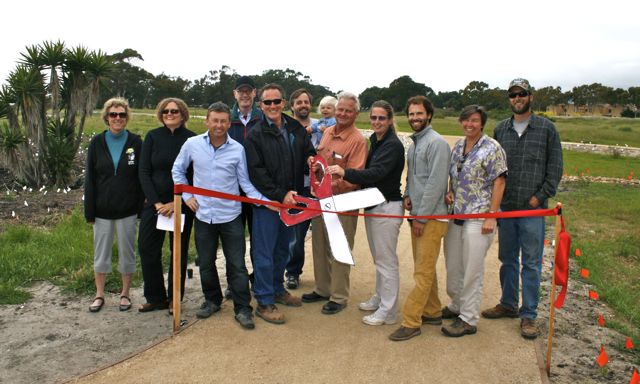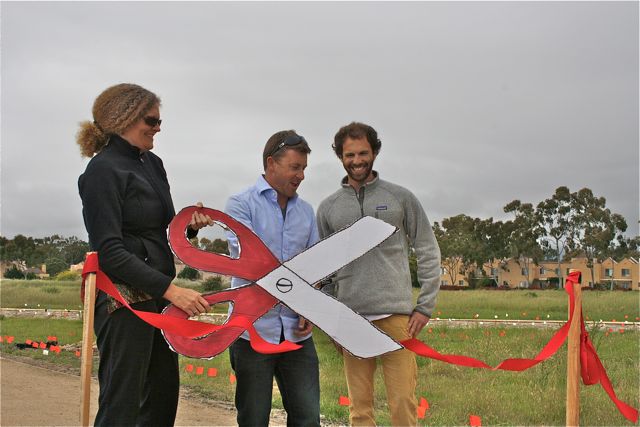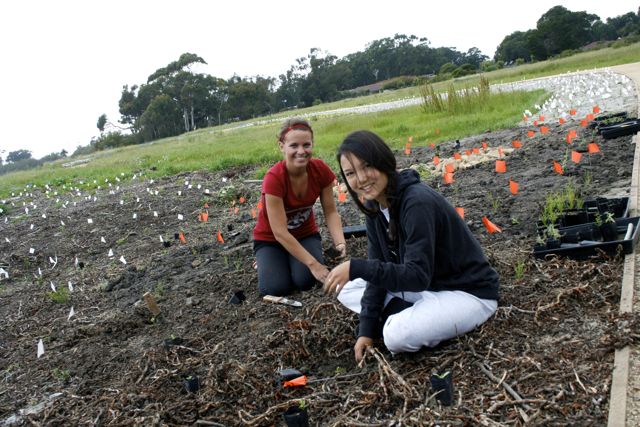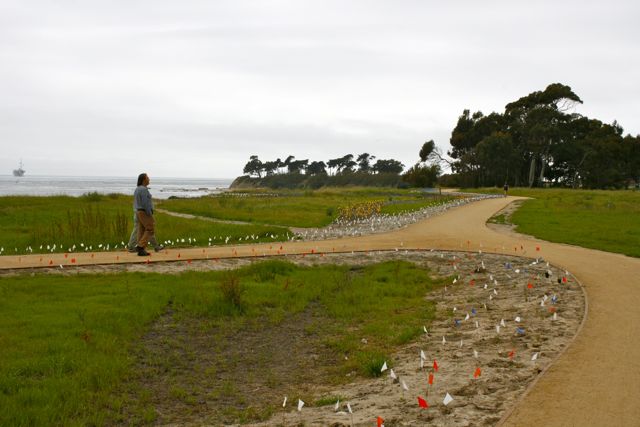In March of this year the League of American Bicyclists honored UCSB with its Bicycle Friendly Business Gold Award and Bicycle Friendly University Gold Award making UCSB one of only two universities in the country to receive this award. A.S. B.I.K.E.S (BIKES) played a lead part in this achievement.
Indeed, BIKES had another busy year!
Bicycle use at UCSB by students, faculty, and staff is among the highest for any college in the world. BIKES works to extend and maintain the campus network of bicycle paths, provide adequate on-campus bicycle parking, and ensure that the cycling experience at UCSB is both safe and fun is critical. It requires students to continually assess campus needs and to work proactively with campus administrators and the surrounding community. Often projects require considerable planning and community input. In some cases, like the recently completed West Campus Bluffs Trail, state and local agencies including the California Coastal Commission and the County Board of Supervisors must be included in the conversation. BIKES also partners with on-campus departments to fund and plan projects.
This year saw the completion of the West Campus Bluff Trail a project that has been in the works for over five years. BIKES and the A.S. Coastal Fund were instrumental in moving this project forward over several generations of students.
BLUFFS TRAIL RIBBON CUTTING
Cyclists, joggers, surfers, and other beachgoers now have a much smoother ride, run, or walk to the beaches at Coal Oil Point. After seven years of negotiations and planning the West Campus Bluff Trail received much needed improvements this year. The half-mile long trail that snakes along the bluffs between the western edge of Isla Vista and Coal Oil Point is the main corridor for people to walk or ride from IV to Coal Oil Point.
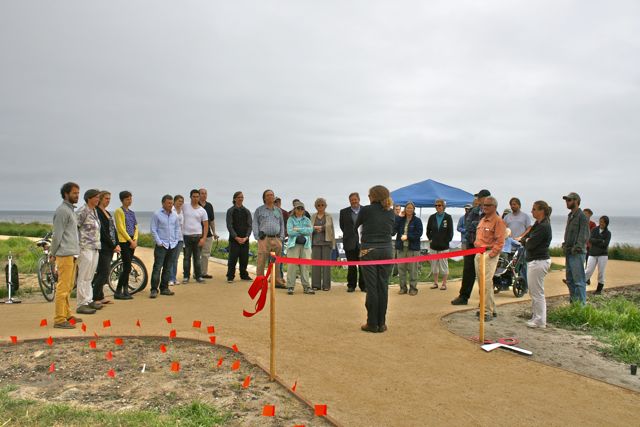 The A.S. Coastal Fund and A.S. BIKES collaborated in the planning and gave over $150,000 to redesign and upgrade the trail to make it far more user friendly and durable. The California State Coastal Conservancy provided $175,000 in matching funds for the project and the Cheadle Center for Biodiversity and Ecological Restoration (CCBER) donated an additional $32,000 and oversaw the restoration work, which was carried out by student interns.
The A.S. Coastal Fund and A.S. BIKES collaborated in the planning and gave over $150,000 to redesign and upgrade the trail to make it far more user friendly and durable. The California State Coastal Conservancy provided $175,000 in matching funds for the project and the Cheadle Center for Biodiversity and Ecological Restoration (CCBER) donated an additional $32,000 and oversaw the restoration work, which was carried out by student interns.
The project entailed re-grading, widening, and stabilizing the trail, which had become rutted and otherwise degraded from overuse and poor drainage. In fact, the condition of the trail was so poor that visitors sought alternative routes, creating a network of “social trails” that exacerbated erosion and impacted adjacent habitats. An ongoing feature of the project is to restore these areas with local native plants.
Completion of this project is a testament to the vision of the students who initiated the process. It also shows how the diligence of successive generations of students supported by A.S. staff members shepherded the project through the necessary university and state review processes and worked successfully with outside agencies to secure the matching funds that turned the original vision into reality.
BIKES on Campus
This year BIKES approved $25,000 in funding for renovations on the Recreation Center’s bike parking lot. This was matched with $20,000 by the Recreation Center Governance Board. The project increased parking capacity from 260 to 456 spaces and included replacing the existing bike racks with Peak Racks, which allow more bikes to be parked in a given area and are manufactured locally in San Luis Opispo.
To address the chronic problem of bicycle theft on campus, BIKES is collaborating with Campus Police to place “bait bikes” around campus. These bikes are equipped with hidden GPS transmitters so that, if stolen, the bikes can be tracked and the bike thief apprehended.
In the interest of improving its service to students, BIKES hosts quarterly “Bike Gripe” events. Students are encouraged to participate and let BIKES know where improvements are necessary by filling out the Bike Gripe Survey. The gripes can range from identifying dangerous sections of the bike paths to suggesting where more bike parking is needed. The Gripes are popular with students and a real help to BIKES and other campus planners for setting priorities in what is an ongoing process of maintenance and improvement.
